Prototyping waste for building insulation
Sustainable Bio & Waste Resources for Construction (SB&WRC) was an EU funded project to design and test prototypes of building insulation, made with locally sourced waste and by-products.
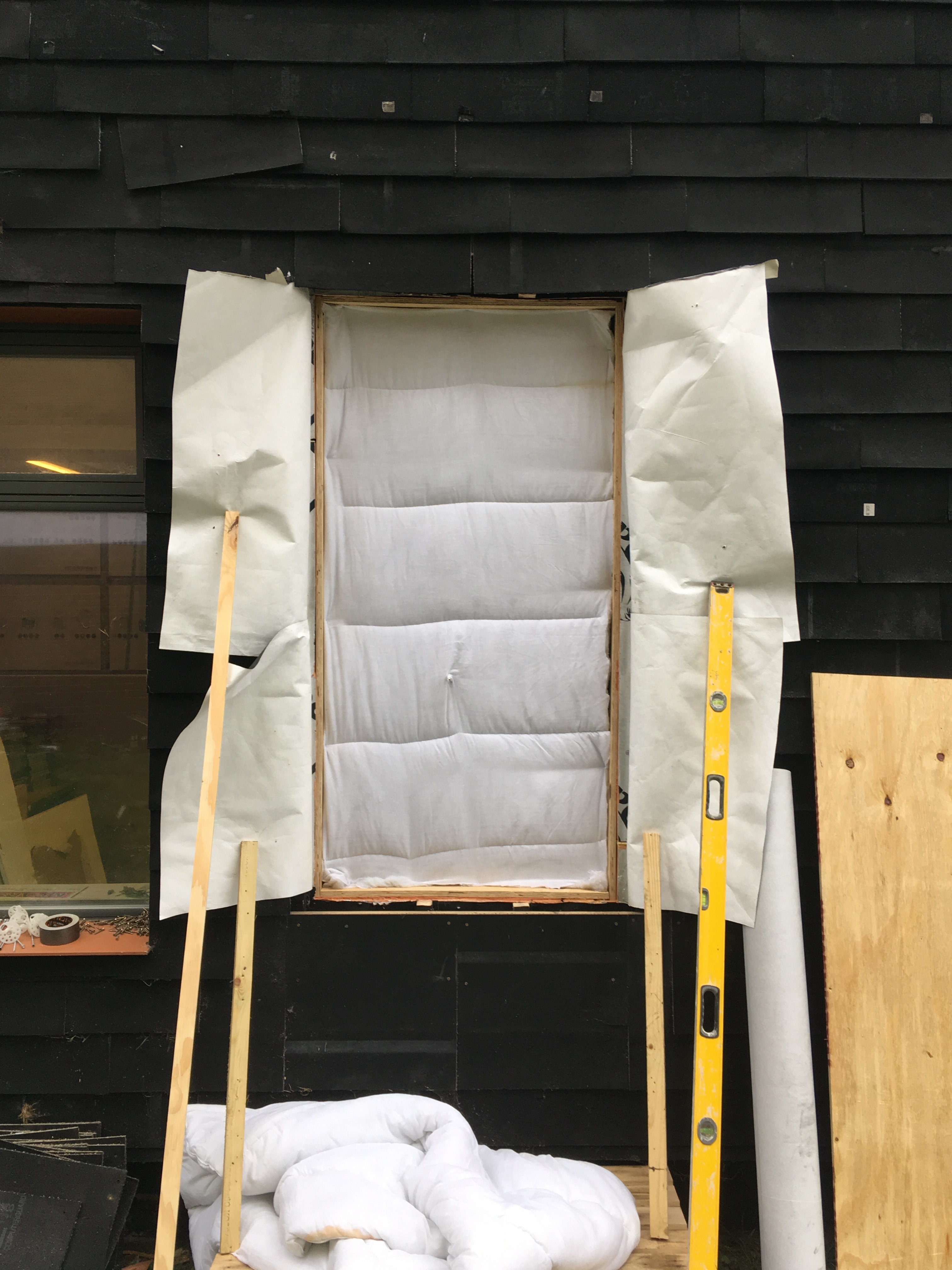
The project, funded by Interreg Europe, encouraged collaboration between academic institutions in the South of England and Normandy in France, and involved many partners: Veolia France; University of Brighton; University of Bath; UniLaSalle and ESITC Caen; ASBP (Alliance for Sustainable Building Products); Construction 21 and the project manager Nomadéis.
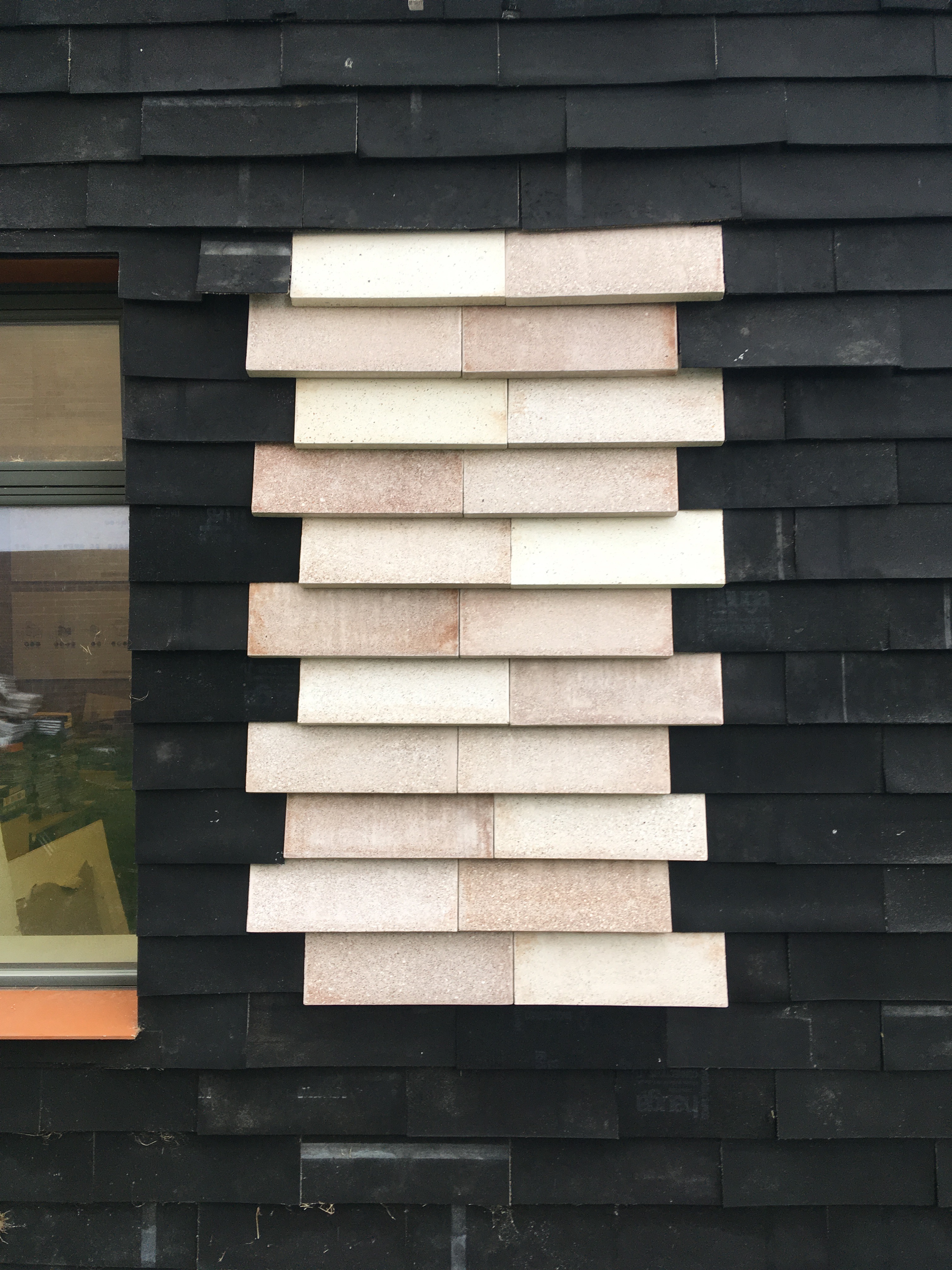
Local Works Studio worked with the University of Brighton to prototype materials sourced from the city of Brighton, for use as building insulation and external wall cladding. Our wall tiles were made with waste oyster shell, blended with other local waste materials – Building materials from shells
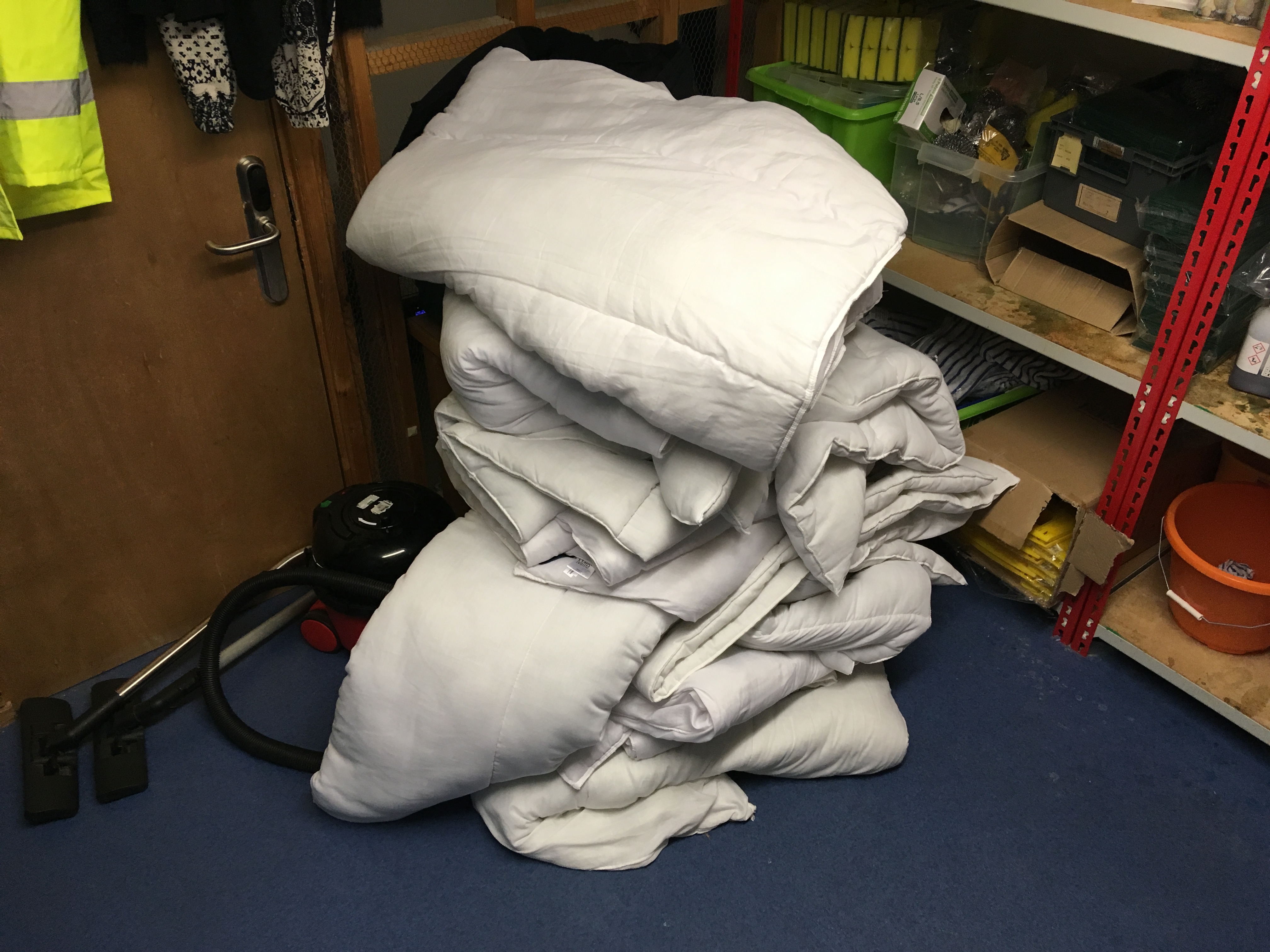
The insulation materials trialed were waste duvets from the student halls in Brighton. Polyester duvets are seen as disposable items that are sent for landfill or burnt for making electricity. The scale of this waste stream is huge, with seemingly new bedding being regularly discarded by institutions and the hospitality industry. Waste bedding (duvets and pillows) can be re-used as insulation materials for buildings, stopping the procurement of new plastic-based insulation materials.

The waste duvets were installed and tested at the Waste House in Brighton, the UKs first permanent building constructed from waste.
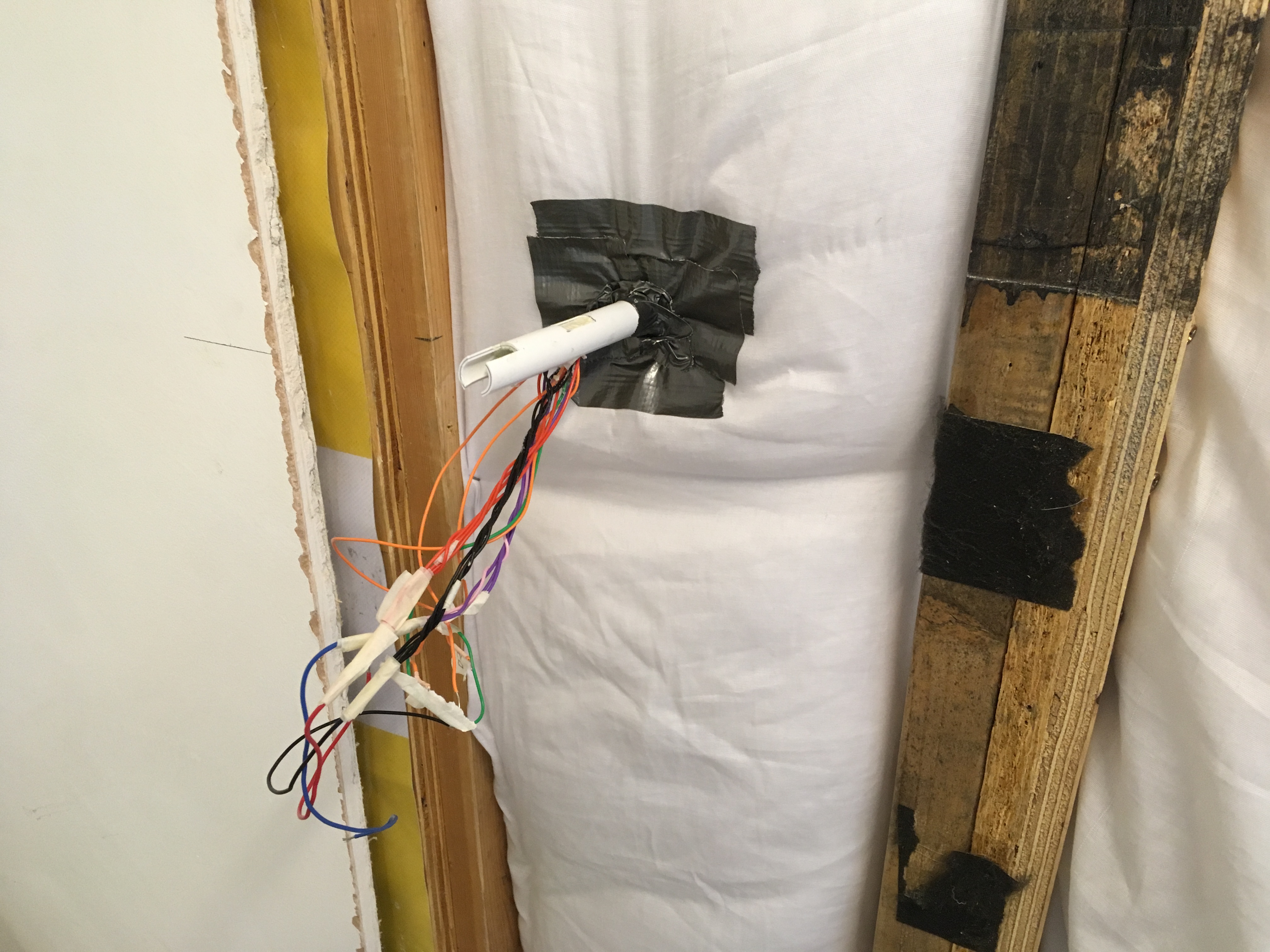
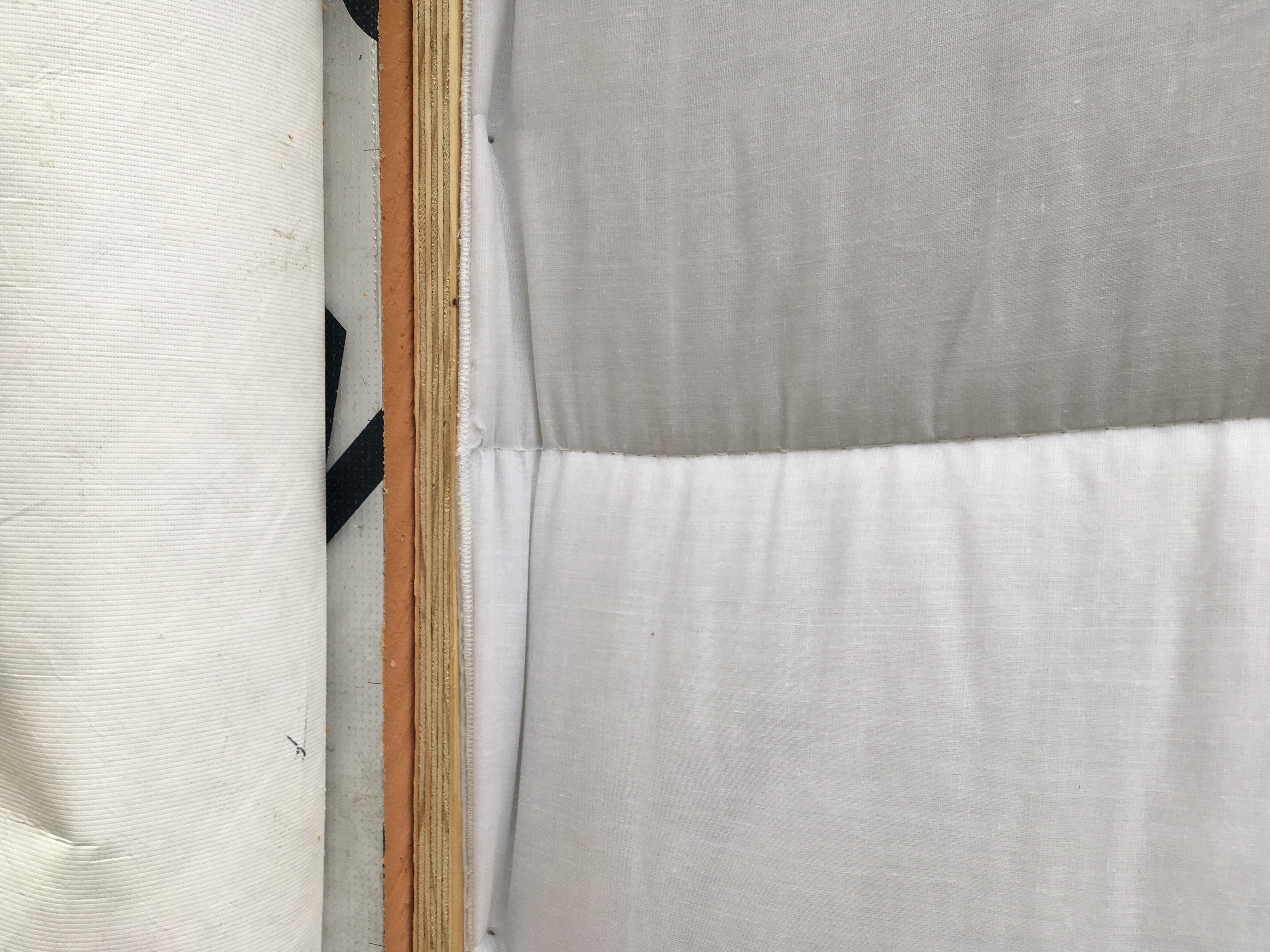
Project: SB&WRC project, University of Brighton
Collaborators: Universities of Brighton, Bath, Rouen and Caen. ASBP, Veolia, Construction 21, Nomadéis
Location: Brighton, East Sussex
Date: 2018